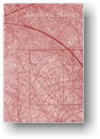|
articles |
|
1.
|
Idealistic Studies:
Volume >
32 >
Issue: 2
Wendy Lynn Clark, J. M. Fritzman
Reducing Spirit to Substance:
Dove on Hegel’s Method
abstract |
view |
rights & permissions
| cited by
In “Hegel’s Phenomenological Method,” Kenley R. Dove maintains that the method of the Phenomenology of Spirit is not dialectical but instead wholly phenomenological. That is, Dove claims that Hegel’s method is purely descriptive. Dove’s interpretation has been highly influential and widely accepted. This article argues that, although there is a phenomenological aspect to Hegel’s method, that aspect itself presupposes a prior dialectical moment. Failure to account for that dialectical moment results in spirit being reduced to substance.
|
|
|
|
|
2.
|
Idealistic Studies:
Volume >
32 >
Issue: 2
Bo Earle
Hegel, Wittgenstein, and the Dialectic of Philosophy and Anthropology
abstract |
view |
rights & permissions
| cited by
The early Hegel and late Wittgenstein alike suggest that the idealism-realism contrast is better understood as a contrast between normative and naturalistic accounts of actions. Building upon parallels between Hegel’s account of the “inverted world” and what Kripke called Wittgenstein’s “skeptical solution to the skeptical paradox,” I suggest that Wittgensteinian rule following may involve not only first personal commitments, as Lear argues, but also something like the specifically historical agency Hegel called Geist, and that, in turn, Hegel’s “Absolute” may be seen to represent not this agency itself but the normative “rule” governing our accounts of what it is to be a rule-following agent. This construal suggests that Brandom’s pragmatic reading of Hegel, claiming that practical adjudication of norms may be pursued independently of historical self-accounting, artificially delimits the practical sphere of such adjudication, and thus undermines rather than promotes the pragmatism he pursues.
|
|
|
|
|
3.
|
Idealistic Studies:
Volume >
32 >
Issue: 2
Frederick Rauscher
The Regulative and the Constitutive In Kant’s and Hegel’s Theories of History
abstract |
view |
rights & permissions
| cited by
I show one reason why Hegel’s theory of history is an improvement over Kant’s. There is an ambiguity in Kant’s theory of history. He wants, on the one hand, to distinguish empirical history (and, by extension, other empirical sciences which constitute experience) from reason’s a priori regulative role in theory. On the other hand, his view of the nature of sciences and the role of reason precludes such a separation. I trace this problem to different roles assigned the faculties of understanding and reason in our experience. In Hegel’s theory of history, both reason and understanding together constitute the sciences, and thus experience. Hegel argues that history is a unified field employing both understanding and reason. I conclude that the more consistent theory of history for idealists is Hegel’s, and that this consistency partially explains the movement in German Idealism from Kantian to Hegelian thought.
|
|
|
|
|
4.
|
Idealistic Studies:
Volume >
32 >
Issue: 2
Alan L. T. Paterson
Does Hegel Have Anything to Say to Modern Mathematical Philosophy?
abstract |
view |
rights & permissions
| cited by
This paper argues that Hegel has much to say to modern mathematical philosophy, although the Hegelian perspective needs to be substantially developed to incorporate within it the extensive advances in post-Hegelian mathematics and its logic. Key to that perspective is the self-referential character of the fundamental concepts of philosophy. The Hegelian approach provides a framework for answering the philosophical problems, discussed by Kurt Gödel in his paper on Bertrand Russell, which arise out of the existence in mathematics of self-referential, non-constructive concepts (such as class).
|
|
|
|
|
5.
|
Idealistic Studies:
Volume >
32 >
Issue: 2
F. Scott Scribner
Affectivity, Transparency, Rapport:
Circumscribing the Fichtean Unconscious
abstract |
view |
rights & permissions
| cited by
At last scholars are recognizing that the great generative architectonics of idealism’s account of self-consciousness would demand or imply, from a genealogical perspective, an unconscious. Yet, between Foucaultian inspired analyses of madness in Hegel, and Slavoj Zizek’s Lacanian readings of the unconscious in the work of F. W. J. Schelling, there has been essentially no mention of J. G. Fichte. As an attempt to redress this failure, I will begin to sketch Fichte’s own unique articulation of an unconscious (Unbewusst) by highlighting three unique aspects or perspectives: (a) the idea of a pre-conscious, self-affective self; (b) the notion of the self-seeing eye; and (c) his own first hand involvement with dynamic psychiatry’s phenomena of magnetic rapport. This exposition of the unconscious in Fichte has two distinct ends. First, it stands as one of the first sustained expositions of the unconscious in the work of Fichte. This analysis which places Fichte’s work in the broader genealogy of dynamic psychiatry, however, also stands as a critique of the Freudian psychoanalytic model of the unconscious.
|
|
|
|
|
6.
|
Idealistic Studies:
Volume >
32 >
Issue: 2
Dieter Freundlieb
The Return to Subjectivity As a Challenge to Critical Theory
view |
rights & permissions
| cited by
|
|
|
|
